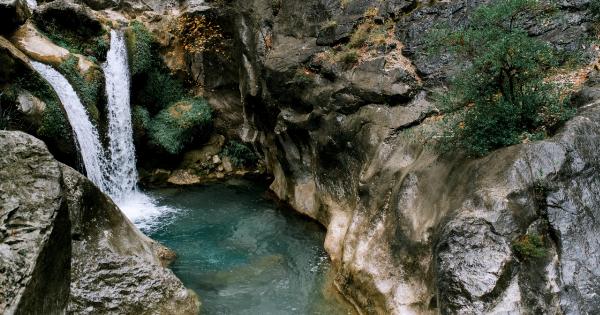Kidney stones are a common urological condition that can cause severe pain and discomfort. They are formed when certain substances in the urine, such as calcium, oxalate, and uric acid, crystallize and solidify in the kidneys.
While several factors contribute to the development of kidney stones, recent research suggests that sleep quality may also play a significant role.
Understanding Kidney Stones
Kidney stones are hard, stone-like deposits that form in the kidneys. They can range in size from a grain of sand to a larger, golf ball-sized stone.
The most common type of kidney stone is calcium oxalate, which forms when calcium combines with oxalate in the urine. Other types of stones include uric acid stones, cystine stones, and struvite stones.
Kidney stones can cause excruciating pain when they pass through the urinary tract, leading to symptoms such as intense back or abdominal pain, blood in the urine, frequent urination, and a burning sensation during urination.
In some cases, they may even cause complications such as urinary tract infections or kidney damage.
The Connection Between Sleep Quality and Kidney Stones
While sleep quality is not a direct cause of kidney stone formation, several studies have highlighted the relationship between the two.
Poor sleep habits and inadequate sleep duration can disturb various bodily functions, including those related to the urinary system.
1. Disrupted Calcium Metabolism
One possible mechanism linking sleep quality to kidney stone formation involves disrupted calcium metabolism. Calcium is a key component of kidney stones, and its levels in the body are regulated by various hormones.
Adequate sleep is crucial for the proper functioning of these hormonal systems.
A study published in the Journal of Urology found that individuals with shorter sleep duration and lower sleep quality tended to have higher urinary calcium levels, increasing their risk of developing calcium-based kidney stones.
Disrupted sleep patterns can disrupt the delicate hormonal balance, leading to abnormal calcium metabolism and higher stone formation.
2. Dehydration and Reduced Urine Volume
Another factor influenced by sleep quality is hydration status. Sleep deprivation can contribute to dehydration, as it affects the body’s ability to regulate fluid balance.
When the body is dehydrated, the urine becomes more concentrated and acidic, promoting the crystallization of stone-forming substances.
Furthermore, sleep deprivation may also decrease urine production, reducing the volume of urine passing through the urinary system.
This reduced urine volume can lead to the accumulation of stone-forming substances, increasing the likelihood of stone formation.
3. Increased Oxidative Stress
Oxidative stress refers to an imbalance between antioxidants and harmful free radicals in the body. Studies have suggested that poor sleep quality can contribute to increased oxidative stress, which can promote kidney stone formation.
Oxidative stress can affect various physiological processes and contribute to the inflammation of the urinary tract.
It has been shown to alter the composition of urine, favoring the formation of crystals and increasing the risk of kidney stone development.
4. Impact on Blood Pressure
A healthy sleep pattern is crucial for maintaining optimal blood pressure. However, inadequate sleep, particularly sleep disorders like sleep apnea, can lead to high blood pressure or hypertension.
Elevated blood pressure is a risk factor for kidney stone formation.
High blood pressure can negatively affect kidney function, impairing the kidneys’ ability to filter and excrete waste products and stone-forming substances effectively.
It can also promote the development of kidney damage, further increasing the risk of kidney stone formation.
5. Inflammation and Immune Function
Poor sleep quality and chronic sleep deprivation have been associated with increased inflammation in the body and impaired immune function.
Inflammation plays a crucial role in kidney stone formation, as it can lead to changes in urinary pH and the concentration of stone-forming substances.
Additionally, adequate sleep is essential for a properly functioning immune system.
Sleep deprivation can compromise immune function and affect the body’s ability to defend against infections, which can increase the risk of urinary tract infections. Urinary tract infections are a common risk factor for the formation of certain types of kidney stones.
Preventing Kidney Stones by Improving Sleep Quality
While there are several factors involved in kidney stone formation, optimizing sleep quality can be an effective preventative measure.
By improving sleep habits and ensuring adequate sleep duration, individuals can potentially reduce their risk of developing kidney stones.
1. Establish a Consistent Sleep Schedule
Going to bed and waking up at the same time every day helps regulate the body’s internal clock and promotes better sleep quality. Aim for seven to eight hours of uninterrupted sleep each night.
2. Create a Restful Sleep Environment
A comfortable and conducive sleep environment is essential for a good night’s sleep. Ensure your bedroom is dark, quiet, and at a comfortable temperature. Invest in a quality mattress and pillows that provide proper support.
3. Limit Caffeine and Electronics Before Bed
Avoid consuming caffeine or stimulating substances, such as coffee, tea, or energy drinks, in the evening. The stimulating effects of caffeine can interfere with sleep onset and reduce sleep quality.
Additionally, minimize exposure to electronics (e.g., smartphones, tablets, computers) before bedtime, as the blue light emitted by these devices can suppress the production of melatonin, a hormone that promotes sleep.
4. Practice Relaxation Techniques
Incorporate relaxation techniques into your bedtime routine to help calm the mind and prepare the body for sleep.
This can include activities such as reading a book, taking a warm bath, practicing mindfulness or meditation, or engaging in gentle stretching exercises.
5. Stay Hydrated
Proper hydration is vital for maintaining overall health and reducing the risk of kidney stones. Aim to drink an adequate amount of water throughout the day to promote urine dilution and prevent the accumulation of stone-forming substances.
However, avoid excessive fluid intake before bedtime to reduce nighttime bathroom visits that may disrupt sleep quality.
6. Address Sleep Disorders
If you suspect you have a sleep disorder, such as sleep apnea or insomnia, seek medical evaluation and treatment. Treating underlying sleep disorders can improve both sleep quality and overall health.
Conclusion
While sleep quality may not be the sole cause of kidney stone formation, it can significantly influence the risk and development of this painful condition.
By prioritizing good sleep habits and maintaining adequate sleep duration, individuals can potentially reduce their chances of developing kidney stones. Improved sleep quality can positively impact various physiological processes related to kidney stone formation, including calcium metabolism, hydration status, oxidative stress, blood pressure, inflammation, and immune function.
Therefore, by taking care of our sleep health, we can also take steps towards preventing kidney stones and maintaining optimal urinary system health.






























